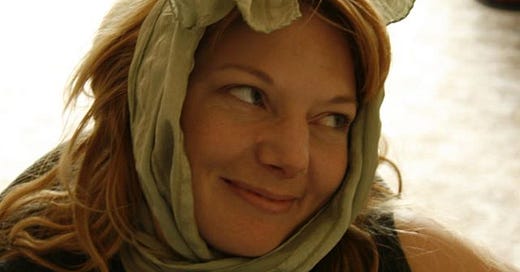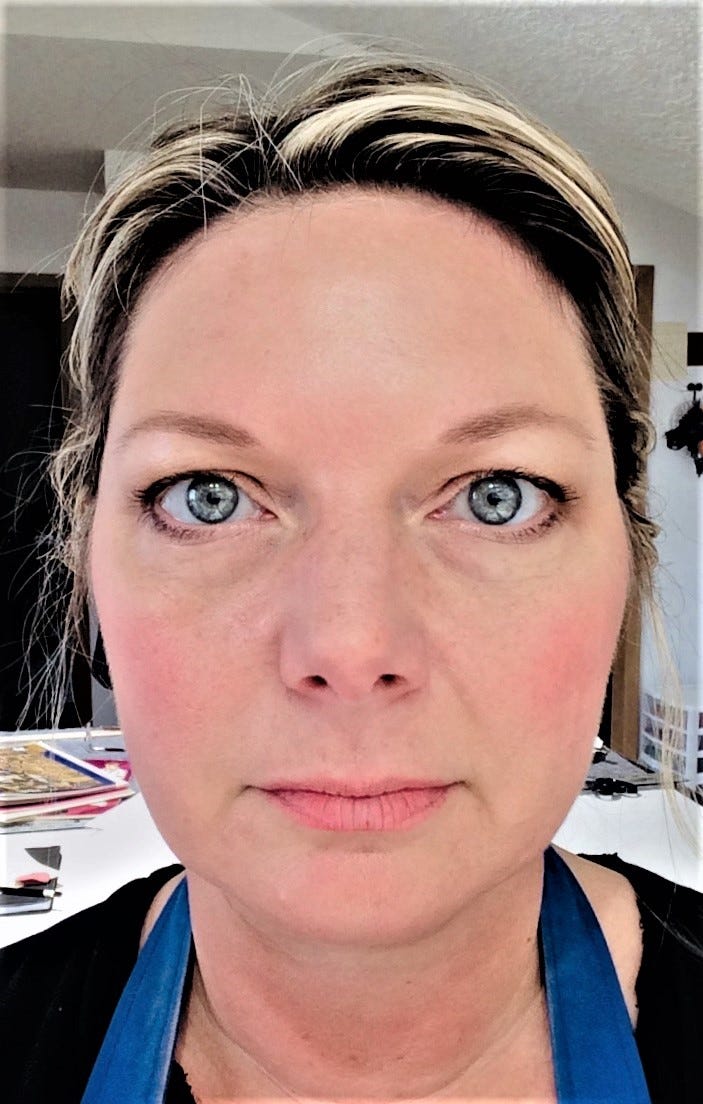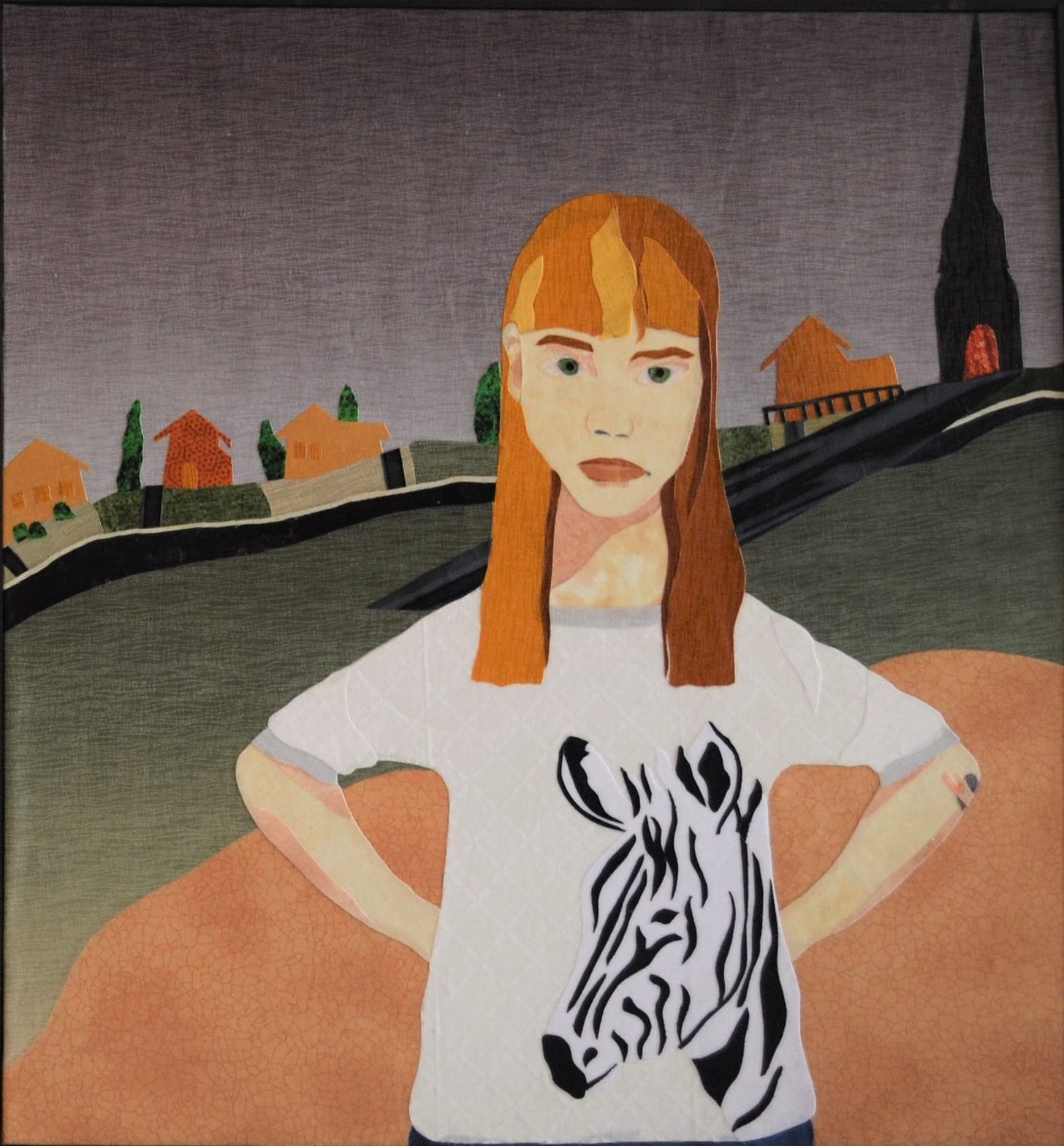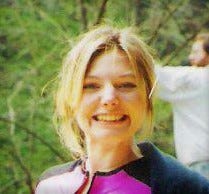A few months ago, in a post about Introversion titled Becoming Yourself, I talked about learning to embrace my natural tendencies toward quiet reflection and isolation. While that post resonated with many other introverted souls, upon diving deeper, I’ve discovered that my brand of “introversion” has a serious twist: I’m autistic.
Autism and Introversion can, at times, seem similar but they’re not identical. They’re not mutually exclusive, either. A person can be both. I think the difference between introversion and autism is that introverts prefer isolation and quiet while autistic people require isolation and quiet. If your experience is different, let me know.
We all have moments from childhood that stick with us, for one reason or another. In the moment, we might not understand their significance but I’m convinced they serve as clues to unlock the mystery that is us.
Misunderstanding and Confusion
When I was in first grade, my teacher gave our class a pop quiz. She passed the freshly Xeroxed pages down the rows of students… (if you’re my age, you’ll relate to this).
On the page was a list of numbers, and she gave us the instructions orally:
“I want everyone to write a number that comes after the number you see. When you’ve finished, put your paper on my desk.”
We all set to work, pencils in hand, eagerly jotting our answers. This is easy, I thought. One of the first to complete the test, I gleefully walked my paper to her desk and breezed back to my chair feeling quite proud of myself.
Later that afternoon my teacher, Ms. Ridgeway, returned our papers. Imagine my dismay when every single one of my answers was marked wrong.
I felt sick. I felt confused. I looked around the room and none of the other children looked upset - their papers were covered with checkmarks and smiley faces. They had gold stars. They got it all right; I got it all wrong. Worst of all, I didn’t understand why.
I felt utterly bewildered.
Gaslighting
When we think of gaslighting, we typically think of narcissistic manipulation tactics. We might not even realize that we can gaslight ourselves, but we can. For those who might not know, gaslighting is a form of communication that can cause you to question your own reality. It can cause you to wonder whether you're in the wrong during arguments, discussions, event recollection, and many social situations.
While it’s always healthy to consider the prospect that you might be wrong, gaslighting causes you to doubt your own perception of events. It can be crazy-making.
When I looked around the classroom at the other children who had completed the task successfully, I started to gaslight myself. I wondered, What’s wrong with me? What did I do wrong? How did I misunderstood the instructions? Maybe I don’t know my numbers after all…
The disconnect between my own thoughts and the situational reality made me physically dizzy. I began to feel anxious and unstable. I felt like an alien. My reality didn’t make sense.
Clarity
Fortunately, my teacher was as confused as I was about my test result. Up until that day I had been an A+ student, so this was an unusual result for me. After everyone else had left the classroom, she talked to me. I don’t recall but I was probably in tears, or close to being.
I tried to explain that I had followed her instructions. I repeated them precisely, “Write a number that comes after the number on the page.” After a bit of back and forth, she finally came to understand that I had followed her instructions correctly - and way too literally.
What’s a number that comes after 5?
15
What’s a number that comes after 8?
12
Technically, my answers were correct based on the instructions she gave. Socially, however, in the context of that first-grade classroom, my answers were so wrong. For some reason, all the other children understood her secret code. When she had said, “Write a number that comes after 5”, they’d all heard, “Write THE number that comes after 5”, and they all got it right.
Why did I hear it differently? Furthermore, why didn’t anyone else hear what I heard?
Ms. Ridgeway let me retake the test with a clearer understanding of what she wanted and I aced it. I was still confused about what had happened, but we all moved on with life and I came to accept that I’m a person who takes things literally.
I didn’t know then, and wouldn’t know for another 45 years, that my brain operates differently than most. I didn’t know that my brain is neuro-divergent which causes me to perceive just about everything differently from the way most people do.
My Special Brain
An autistic brain experiences unusually rapid growth in infancy or early childhood. The causes for this are debatable, and I won’t get into that right now. For whatever reason, the brain develops an atypical pattern of connectivity resulting in some areas that are enhanced and other areas that are reduced. Some books classify it as an “Impairment of Intelligence”, but that’s not entirely accurate. Highly-functioning autistic people can be unusually intelligent in some areas, while having gaps and blind-spots in other areas.
Also, the mirror-neurons that are responsible for the way most people learn to interact through osmosis are altered. For example, a baby mimics it’s parents’ facial expressions thereby learning to express emotion. From infancy, that baby develops further and becomes more expressive.
Not so with autistic people.
The result is that autistic people tend to have trouble with social interactions and communication. We’re not naturally adept at reading body language or faces and may seem to have a flat, expressionless face - sometimes referred to as “resting bitch face”.
Likewise, everyone’s brain has a limit to the amount of sensory input we can tolerate at once (no matter what some believe about multi-tasking). In order to increase focus, most people have natural filters so they can zero-in on certain input and screen out other input… kind of like people who can study with music on.
Autistic people have a low ability to filter which makes us hyper-sensitive to sensory input. We experience all sensory input equally, and don’t have a choice about it.
As you might imagine, this can cause problems. For instance, if I’m working in an office under overhead lighting that’s too bright, I won’t be able to concentrate on what someone is saying. If I’m having dinner with several people and one of them pulls me into a side conversation, I’ll get uncomfortable because I can’t tune out the other people talking. It’s just too much sensory input coming at me at once.
As a result, I zone out.
People have different ways of dealing with overstimulation including gestures that can be pretty obvious like hand flapping or excessive fidgeting or ways that are less obvious like hair twirling or biting their lip. If the overstimulation goes on for too long or becomes more than we can handle, we might withdraw or shutdown completely. We might suddenly become quiet or get up and leave the room unexpectedly.
These “weird” behaviors can take others aback, resulting in all sorts of social and inter-personal difficulties.
Autism Has Many Faces
It’s important to note that, while there are many common traits among autistic people, the disorder presents differently in each individual. For instance, while some autistic folks are “high-functioning”, others need help in every basic area of life. That said, I don’t think there is any such thing as “a little bit autistic”. You either have it or you don’t.
To illustrate, it helps to picture autism as an iceberg. While some autistic folks have more ice showing above the surface than others, the autism itself is still a huge iceberg whether others can see it or not.
I’ve also heard some autistic people describe themselves as a duck calmly floating on the water’s surface while, underneath, their feet are pumping feverishly to keep up with everyone else to appear “normal”.
The behaviors we perform to seem normal are referred to as Masking. More about that in a bit.
20 Autistic Traits
You might recognize some of these traits in yourself or someone you know. This alone doesn’t mean that you’re autistic but the more traits you have, the more likely you may identify as autistic.
Autism presents differently in each individual and this list is by no means exhaustive.
Unusually introspective and self-conscious
Deep fascination with certain topics; may collect facts, dates, and figures; notices and remembers details
Remembers and arranges facts in a systematic fashion
Ability and desire to research intensely and for long periods of time, uninterrupted
Does not handle interruption well; difficulty changing tasks quickly, may become easily flustered
Understands and prefers the logical and physical world over the emotional
Delayed social processing, using intelligence rather than intuition (can seem robotic)
Either highly organized or finds organization extremely challenging
Hyper-sensitive to external stimuli (lights, sounds, smells, touch)
Quickly overwhelmed with too much social interaction (easily depleted)
Requires routines to feel at ease (same foods, same clothes, same schedule, same people)
May be perceived as rude, disrespectful or disinterested by others
Feels or exhibits a lack of social maturity and social reasoning; difficulty reading body language and social cues
Alternatively to #13, may be hypersensitive to micro-expressions that most other people do not notice
Has difficulty making and keeping friends; has difficulty obtaining and maintaining employment
Usually possesses and masters one or more self-taught skills or knowledge about specific topics; above-average intelligence in certain areas
Is remarkably honest, and often blunt and direct
Has a distinct (often dry) sense of humor
Unusual language abilities that include advanced vocabulary and syntax, with a paradoxically impeded ability to express themselves orally/conversationally
Often appears younger than their age
If these sound like you, or someone you know, here’s a test you can take online to learn more: Autism Spectrum Quotient
Autistic Masking
Autistic people are painfully aware that we are not like most other people. Other people seem to know it, too, instinctually, and it can cause us a lot of distress. Not fitting in can mean we have fewer friends, if any. It can mean we suffer at work through misunderstandings; it can mean we have chronic stress and low energy levels because we’re always “on”.
As a high-functioning autistic person, I can only speak from my own experience. I’d like to think that when I finally tell people about my condition, they’re shocked -mouths agape. The truth is, they’re probably thinking, “Oh, yeah, that explains a lot.”
While I’d like to believe my masking has been foolproof and undetectable, I’m sure it never was. Not even as a kid.
When I was in middle school, Adam, a very popular boy, wanted to “go with me”… For the benefit of younger readers, this expression was used when a boy and girl wanted to be boyfriend/girlfriend but were too young and immature to even speak to one another. The phrase, “We’re going-together,” didn’t actually mean you were going anywhere, it just meant you were crushing on each other from a distance. The arrangement was usually made vicariously through friends who actually did talk to each other and the arrangements weren’t long lasting. As you might imagine.
It was a weird time to be alive…
Regardless, when I was in middle school, Adam wanted to go with me and we did “go together” for a bit. Until he broke up with me - vicariously, and for no apparent reason.
Like you do, I cornered him during lunchbreak in one of the classrooms (that’s normal, right?).
“Why did you breakup with me?” I was very direct.
He, like most normal pre-teen boys, was not.
I’m sure I badgered him until he finally admitted he had broken it off after another of his popular peers had asked him, “Why do you like that weird girl?”
It hurt to hear that, but it was the truth and there was some comfort in knowing. It also revealed a lot about Adam - that he was a spineless follower who obviously would never be able to handle my kind of spice anyway… What a wuss.
Even so, it hurt.
And that was middle school, when I was peaking socially and academically. I felt lost. Maybe I already knew I was a little bit weird, but I didn’t know they knew. I guess the cat was out of the bag, so to speak.
My point is, masking is habitual but not entirely effective. Regardless, we autistics do it all the time.
Social Interaction
Under the right circumstances, I enjoy having conversations. I’m curious about people and I genuinely listen to what they’re saying. Conversations are tricky, though, because I’m also hearing my own internal dialog, simultaneously:
Is my face making the right expression? Should I put my hands on the table? In my lap? I feel awkward. Am I slumping? Do I look interested? Should I make the sad face now? Am I making enough eye contact? Too much eye contact? Am I freaking them out? Oh, crap. It’s my turn to talk. I want to tell this story, but I’ll tell it wrong. Crap, they’re looking at me. Abort! Abort! Smile. Deflect… Ask them a question!
That’s generally how my self-talk goes during conversation. It’s painful and it’s distracting - especially if I’m speaking with a person who is super-animated and talkative. Although I genuinely enjoy energetic people, they’re the most taxing on my nerves. Instinctually, I feel like I have to match their energy and expressions or they’ll infer that I don’t like them. Or worse, they’ll think I’m weird.
Conversations are a bit less painful with people who are low key so I gravitate towards other introverts, especially one-on-one. My internal dialog never stops, though. Unless I know someone well (and I mean years), I always feel awkward - analyzing every movement and expression to death, hoping I’m “doing it right”.
As you might imagine, walking into a room full of people is an overwhelming experience for me. Like a human antennae, I tend to pick up on the energy of every person in the room, all at once. That may seem a bit woo-woo to imagine for neurotypical people (people who are not neuro-divergent), but after 52 years of observing human behavior, I can usually tell which people are “safe” to talk to and which are going to drain my battery like a Tesla.
In short, being autistic can feel like you’re an alien on a strange mission to observe humans in their natural habitat. Like any alien, you don’t want to get found out so you mask to blend in with the other humans - you learn to camouflage.
I realize that my tendency to closely observe people probably makes them uncomfortable from the start, so maybe it’s a self-fulfilling prophesy when I’m labelled weird or ostracized.
Maybe… but it’s the only way I know how to be.
So why do we mask?
Can you imagine if I interviewed for a job wearing my resting bitch face? Or if I met someone for the first time and made no eye contact? As things stand now, autistic people have no alternative but to fake “normal” behavior in order to participate in life. The ones who fake it best are called “high-functioning” while those autistics who cannot manage to fake it are generally excluded from everything.
The best description of high-functioning I’ve come across to date: “High functioning means my autism doesn’t affect YOU as much.”
Autistics are the exceptions to your norm, molding ourselves to the majority so that other people feel comfortable. We’re expected to do this nonstop and it’s exhausting.
***RANT INCOMING***
All my life, when minding my own business, I’ve been hit with comments out of the blue about my face: “You’d be a whole lot prettier if you’d smile,” or, “Smile, it can’t be that bad…”. These rude people, usually men (sorry guys), believe they have license to say this sort of thing to those of us (usually women) who aren’t wearing an ear-to-ear grin. I just want to kick them.
In their smiling faces.
But then I’d be a accused of having a disproportionate reaction to their “charming observation” when, after all, they just wanted to see me happy, right?
***END OF RANT***
Mischaracterization
Neurotypical people can find it hard to believe that someone who performs so well in certain areas would have blinding gaps in others. Often, they rush to the worst assumptions, mistaking genuine confusion for sarcasm or defiance. The more we try to explain ourselves (which is not our strength), the deeper hole we dig for ourselves.
For example, at my last job, my manager believed I had developed a bad attitude. She dictated in my performance plan that I needed to smile more, speak more quickly, engage in face-to-face contact over email, read other people’s body language, and have social coffee once a month with each of the people I managed… All autistic impossibilities.
At the time, I had no idea that I was autistic - I just felt like a failure. Why couldn’t I just get along and be like everyone else? What’s wrong with me?
I had started out so well. Within the first few years, I was given a 25% increase in pay. Let that sink in: TWENTY FIVE percent! Obviously, I was doing something right. I kept my mask on tight for nearly 6 years before it started to slip. While my work never faltered, the demand to have constant social interaction in a way that others deemed “normal” was crushing my soul. Gradually, I started to resent the demands that felt so unnatural to me. I’m sure my attitude did sour, thus the performance plan to “improve my attitude”. As you might imagine, it had the opposite effect.
It’s perhaps important to note that my manager’s objective for our department was to literally imitate Disney World’s Customer Service Strategies.
If ever there was a hell on earth for autistics, it would be Disney World.
Finally, after two years of faking a “better attitude”, I had to leave that job (which I loved very much and was damn good at). These kinds of misunderstandings are common and costly for autistics in the workforce.
Often labelled as difficult, sensitive, emotional, overly-logical, disrespectful, and callus, in reality most autistics spend a lot of our time and energy just being confused about what we’re doing “wrong”.
If you label someone repeatedly and for long enough, they will eventually become the label. Eventually, autistic people stereotyped with having a bad attitude may develop a bad attitude, after all - and why wouldn’t we? Taken to an extreme, one might even begin to dislike other people altogether.
Is it any wonder that I live way out here, far away from anyone? It’s hard to have a misunderstanding with a sunrise.
Authenticity
It’s natural to want to be liked and put our best selves forward. We all want to be accepted into the group we’re trying to join. By masking, we’re not being fake, we’re being human. We’re suppressing tendencies that we know, in the past, have made others uncomfortable. It’s our form of empathy. But we can only suppress those tendencies for so long before we either collapse or implode.
The words authenticity and diversity have become part of our modern social lexicon of late, but these ideals seem to focus more on how people look than how they think. In my experience, at least in the corporate world, diversity of thought is not welcome at all. In fact, being authentic about your real feelings and discomforts can cost you your job. “Corporate Culture” leaves no room for quirks.
Because so many autistics are subject matter experts with unusual abilities to focus and problem solve, this exclusion of quirkiness is a short-sighted mistake. We see the world through a different lens than most and notice details that would otherwise be overlooked. We’re an asset waiting in the wings… but we’re too often inconvenient, too direct, and too weird for the Adams of this world…
Wusses.
Where to Now?
It may sound as if I’m speaking with some authority on autism, but for 52 years I didn’t know that this sort of behavior wasn’t normal. I thought everyone had constant internal dialogs that over-analyzed every interaction; I thought that everyone secretly dreaded parties and new places. I mistakenly thought that everyone lived with anxiety but, for some reason, they just handled it better than I did. Worse yet, I thought that all those labels I’d worn for years were probably true, even though they didn’t match what was going on with me internally… Maybe I was mean and difficult. Maybe I was a smartass.
In short, I’ve been gaslighting myself for a very, very long time. Discovering that I have autism has caused a tidal-wave of feeling from regret to relief. I’ve had a lot of “ah-ha!” moments and a lot of tears, too. I continue to process.
I’m glad more people are beginning to have conversations about autism and I hope the younger generation discovers what I didn’t know earlier than I did, at 52. That’s why I’m writing this. If my experience can help one person recognize themselves as Autistic and feel less weird, this post will have been worth it.
There’s no cure for autism, and there need not be. Being high-functioning autistic doesn’t mean a person is broken or less than. More often than not, it means being misunderstood - by ourselves as much as anyone.
For now, knowing why we’re quirky or ill-at-ease socially can serve as a comfort and lessen our anxiety. An autistic diagnosis (including self-diagnosis) can connect a lot of dots and bring some long-awaited cohesion to our sense of self.
Discovering you’re autistic means you no longer need to measure yourself by the standards of others. You can stop paddling your feet so hard to be like them. You can be kinder to yourself and accept that you need more down time, more time alone, and more time to process life. You can ask for help from people who get you.
I’m speaking to myself as much as anyone here as I’m still learning how to let down my many masks. I’m going to do more posts on this topic and I hope you’ll join me, whether for yourself or for someone you love who’s facing similar struggles.
Let me know below if you’re curious about a particular aspect of being autistic and I’ll tell you what I know. In the meantime, thanks for being here with me on this journey.














Makes me want to give you a hug. (Which I suppose might freak you out, so it's just as well I live on another continent.)
xx
Oh
My
Gawwwwd
I'm going to take the test you linked but I answered yes to all the points and all the situations you brought up. Including being the weirdo in primary/middle school. I am your age btw, a year older.
'they rush to the worst assumptions, mistaking genuine confusion for sarcasm or defiance. The more we try to explain ourselves (which is not our strength), the deeper hole we dig for ourselves."
Example, but not for being confused, I was genuinely happy to hear it was break time when I was a cashier at a very busy grocery store at Xmas.
"Are you ready for your break?" I was asked.
I replied with a huge smile and what I assumed was a happy tone "Are you kidding me!?" 😃
I was brought to the office for a good whipping after break, for my rude attitude to my supervisor. 😳
As I tried to explain, I imagine just sounded like I was backpedaling and lying. How horrible. I went home and cried my eyes out.
"Taken to an extreme, one might even begin to dislike other people altogether."
Yep. Me now: GET OFF MY LAWN!!!! 😤
❤️🙂